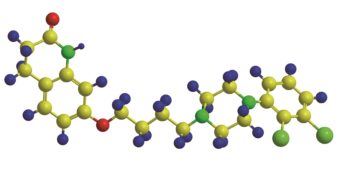
Shutterstock.com
Vitamin D supplementation can reduce the risk of severe asthma attacks by over a third, a systematic review has found.
Led by Adrian Martineau from the Asthma UK Centre for Applied Research at Queen Mary University of London, researchers analysed results from nine placebo-controlled studies that looked at the effect of vitamin D supplementation on asthma symptom control or exacerbation risk in both children and adults.
They found that the rate of severe asthma attacks requiring treatment with systemic corticosteroids was 37% lower among those who received vitamin D supplementation compared with placebo (0.28 vs 0.44 attacks per person per year, respectively).
Patients who received vitamin D were also less likely to attend hospital resulting from an asthma attack compared with placebo-treated patients; there was a 61% reduction in A&E visits and hospitalisations (3% vs 6%, respectively).
However, reporting their findings in the Cochrane Database of Systematic Reviews
[1]
(online, 5 September 2016), the authors found no improvement in lung function or day-to-day symptoms associated with vitamin D supplementation.
The researchers used seven trials involving a total of 435 children and two trials involving 658 adults involved in their analysis, all of whom were given vitamin D3 from 4 to 12 months. Most of the study participants had mild-to-moderate asthma.
The researchers say that although their review supports a clinically meaningful benefit to vitamin D supplementation in asthma, the results should be treated with caution as the data on severe exacerbations came from only three of the nine studies and involved only 22 children.
Martineau says it is unlikely that vitamin D supplementation will benefit everyone with asthma. “The effect we saw was restricted to prevention of severe asthma attacks, so asthma patients who do not get such attacks (around 50% of asthma patients) will not get a benefit from vitamin D in terms of their day-to-day symptoms.”
He also points out that the data used in the review didn’t show whether patients had low levels of vitamin D to begin with, so it is not clear whether only these patients benefitted from the supplements. “The next step is to obtain individual patient data and re-run the meta-analysis to see if particular sub-groups benefit more than others,” he says. “This analysis might be able to identify a threshold vitamin D level below which supplementation provided benefit, but above which it did not.”
Martineau says this analysis is already in progress, and the researchers are expecting the results in the next few months.
Imran Rafi, chair of clinical innovation and research at the Royal College of GPs, the academic organisation in the UK for general practitioners, says the results of the review are encouraging but more work is needed to establish the effect of vitamin D on children and young people who experience a high asthma prevalence.
“It is still too early to make general recommendations on prescribing vitamin D to patients with asthma, but we look forward to seeing the results of further rigorous clinical trials both in adults and children so that we gain a better understanding of this potential method of treatment,” he says.
Steve Holmes, honorary medical adviser for the charity British Lung Foundation, says: “Asthma accounts for 60,000 hospital admissions and 200,000 bed days a year in the UK. This review is an important step towards starting to reduce this number, and improving the quality of life of those living with asthma.
“The results are promising but more research is now needed to find the extent to which vitamin D supplementation can benefit a range of patient groups and for us to understand the association between vitamin D and asthma attacks,” he adds.
References
[1] Martineau AR, Cates CJ, Urashima M et al. Vitamin D for the management of asthma (review). Cochrane Database of Systematic Reviews 201;9:CD011511. doi: 10.1002/14651858.CD011511.pub2


